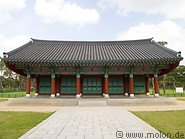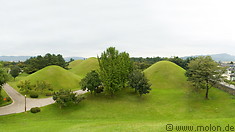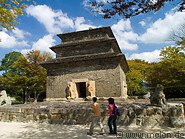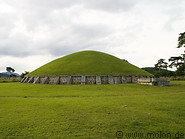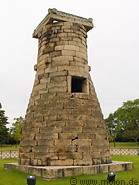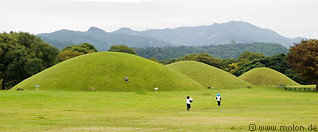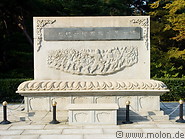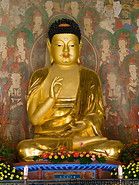Gyeongju, one of the most popular tourist destinations in Korea, offers an abundance of historical sites and antiquities. According to the Samguk Yusa, an early Korean historical work, it became the capital of the Silla dynasty in 57BC.
Over the course of time the Silla dynasty would end up ruling most of the Korean peninsula. Around 660 AD Silla forces joined with Chinese Tang armies to defeat the rival states Baekje and Goguryeo, unifying Korea for the first time. However, this unification included only the southern two thirds of the peninsula. The modern contours of Korea would not take shape until the Goryeo dynasty (918-1392 AD). It is said that at the peak of Silla prosperity in the late 9th century, Gyeongju had over a million residents and not a single thatched roof. Gyeongju remained the capital of Unified Silla until the kingdom's fall in 938 AD.
Over the course of time the Silla dynasty would end up ruling most of the Korean peninsula. Around 660 AD Silla forces joined with Chinese Tang armies to defeat the rival states Baekje and Goguryeo, unifying Korea for the first time. However, this unification included only the southern two thirds of the peninsula. The modern contours of Korea would not take shape until the Goryeo dynasty (918-1392 AD). It is said that at the peak of Silla prosperity in the late 9th century, Gyeongju had over a million residents and not a single thatched roof. Gyeongju remained the capital of Unified Silla until the kingdom's fall in 938 AD.
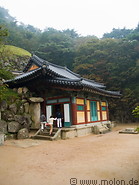
|
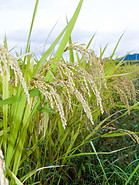
|
|
|
4 photos of the Seokguram grotto near Gyeongju
|
18 miscellaneous photos taken in and around Gyeongju
|
Gallery with all images
|
Related travelogues
|
Page viewed 24161 times since 03.08.2006
©Copyright Alfred Molon

